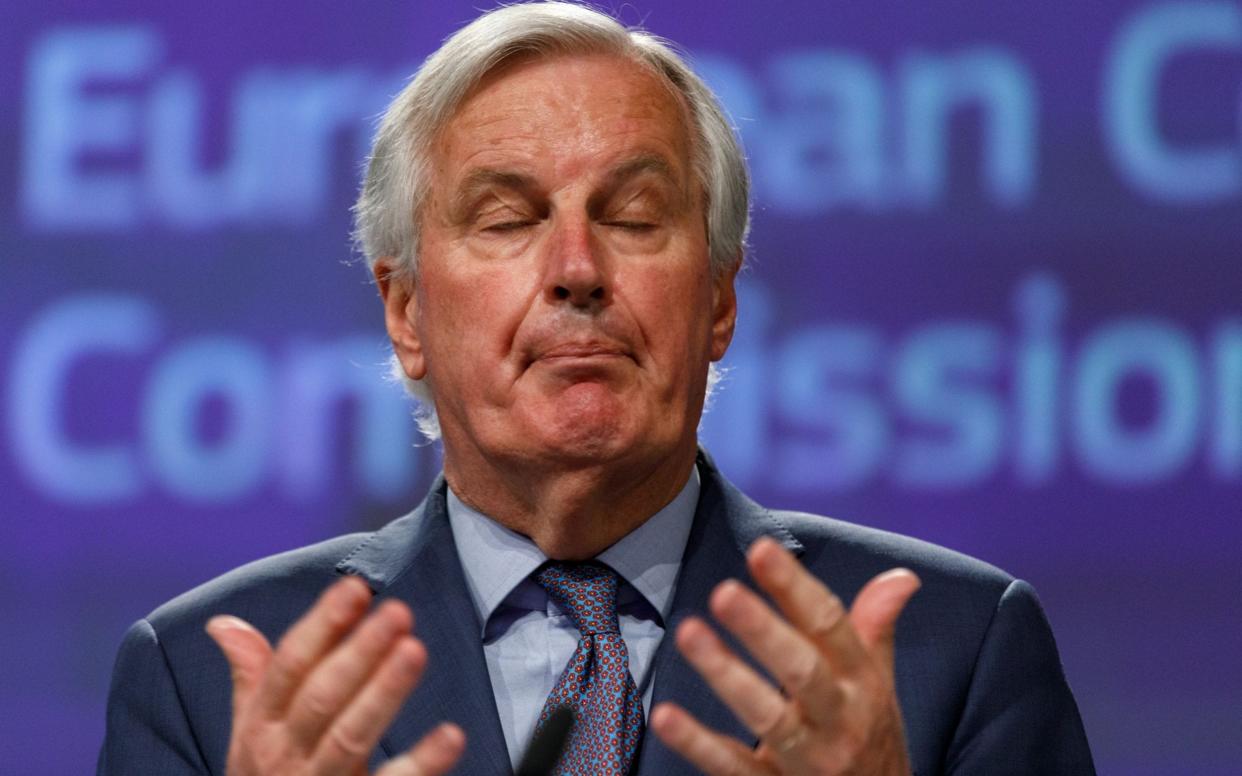Michel Barnier 'losing the argument' in Brexit trade row, Britain's chief negotiator tells Boris Johnson

David Frost, Britain’s chief Brexit negotiator, has told Boris Johnson that Michel Barnier is “losing the argument” in UK-EU trade talks but negotiations could end in no deal.
Mr Frost briefed the Prime Minister that the EU must change its approach if there is to be any chance of sealing a free trade agreement before the deadline of the end of the year.
But he warned that Mr Barnier, the EU’s chief negotiator, was straitjacketed by the EU’s refusal to change his negotiating mandate, which forced him to make unreasonable demands over fishing and the level playing field guarantees.
Officials believe Brussels is trying to force a halfway house compromise on British red lines such as a continued role for the European Court of Justice in British affairs, the creation of a Norway-style fishing agreement or the UK’s right to regulate itself as it sees fit.
British negotiators believe that no trade-offs on these fundamentals are possible, even if Mr Johnson was to intervene personally in the negotiations to try and break the deadlock.
Relations plummeted to a new low as the last round of trade negotiations closed in mutual recrimination on Friday.
Mr Frost attacked the EU’s “ideological” approach to the talks and Mr Barnier accused the Government of not understanding the consequences of Brexit.
"They seek to have the same benefits of a member state of our Single Market without the same rights and obligations," Mr Barnier said, as he revived accusations of UK cherry-picking.
A UK source close to the negotiations said Mr Barnier’s accusation was “bewildering” because Britain only wanted what was typical from a free trade agreement.
“Anyone who thinks this Government's got nostalgia for 2018 or Chequers,” the source said, referring to Theresa May’s rejected plan for UK-EU relations, “has an imperfect understanding of EU-UK political developments in the last couple of years.”
“The only explanation is that their arguments on the merits are not working, and they're reaching for some of the old script.”
EU governments gave Mr Barnier a mandate for the trade talks but with their attention consumed by the coronavirus pandemic have shown no inclination to change it. EU diplomats have ruled out any high-level political intervention from national leaders to save the talks.
The source said: “Mr Barnier must know that his mandate is non-negotiable in at least some important areas, but he's doing his best with it.”
The mandate calls for continued access to UK fishing waters under the same conditions as before Brexit, which is unacceptable to the UK. Mr Barnier has suggested a compromise could be found but has ruled out the annual negotiations over catch shares that the UK wants.
It also asks for level playing field guarantees in tax, state aid, labour rights and the environment as the price for a zero tariff, zero quota trade deal. While the EU says this is to guarantee fair competition, Britain argues it will prevent it from diverging from Brussels’ rules.
Failure to finalise a free trade agreement before the end of the Brexit transition period will mean the UK and EU will be forced to trade on far less advantageous WTO terms, which will compound the economic damage of coronavirus.
There are six weeks until the end of June, which is the legally binding deadline for any extension request to be made. Downing Street insists no request will be made.

